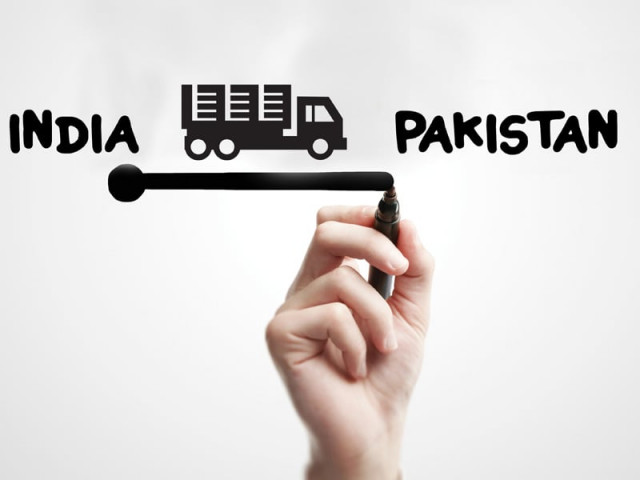Trade liberalisation: Pakistan to allow import of Indian agricultural goods
Farmers lobbies bitterly opposed to the move, threaten to take action by physically blocking imports.

As part of the government’s confidence-building measures with New Delhi, Islamabad is set to allow the use of land transportation to import agricultural goods from India, a move that would likely boost trade in food between the two countries and is vehemently opposed by farmers’ lobbies in Pakistan.
The federal cabinet has already decided to grant most-favoured nation status to India, which simply means that Pakistan will not discriminate against Indian goods compared to imports from other countries. The MFN status will be implemented by the end of December. The liberalisation of the agriculture trade is expected to come before the cabinet once again before that deadline.
According to sources familiar with the matter, the government has finalised a list of 16 items – including palm oil, cigar and cigarettes – that will be allowed for import from India, and subject to minor duties.
While the Foreign Office and the commerce ministry are said to be the driving forces behind the trade liberalisation process, the food security ministry appears to have signed off on allowing freer access to Indian farm goods. When contacted for comment, Food Security Secretary Ahmad Bakhsh Lehri confirmed that his ministry had agreed to the measures.
“We have supported the import of agriculture products from India as Pakistani farmers would also have a big Indian market to export their products,” he said.
Farmers’ groups, meanwhile, are up in arms at the prospect of having to compete with Indian products, which they say are heavily subsidised, rendering Pakistani products uncompetitive based on price.
“In India, a bag of urea is available for INR350 (PKR610) while in Pakistan it costs around Rs1,800 per bag,” said Tariq Bucha, president of Farmers Associates Pakistan, a lobbying group. “Electricity is almost free in India for farmers while its prices in Pakistan have already become extremely unaffordable. Diesel an important input is also subsidised in India while it is not so in Pakistan.”
“If the government of Pakistan is really serious to give the status of MFN to India it should carefully study the infrastructure of agriculture sector of both countries, and start by consulting farmer’s organizations,” Bucha said. He also added that even though India granted MFN status to Pakistan in 1996, New Delhi imposed many non-tariff barriers that make it difficult for Pakistani farmers to export their goods to India.
Even most agricultural lobbyists, however, agreed that allowing more imports from India would create food security in Pakistan by lowering consumer prices. Their argument, though, was that this security would come at the expense of farmers’ incomes in Pakistan, a very large subset of the population. According to the 2011 Pakistan Labour Force Survey, agriculture accounted for roughly 42% of the total labour force in Pakistan.
Farmers groups argue that if Islamabad is going to liberalise agricultural trade with India, then it should try to match New Delhi in terms of the amount it spends on agricultural subsidies.
“In 2011, India spent INR698 billion on subsidising food,” said Chaudhry Hamid Malhi, president of the Basmati Growers Association. “The government has not consulted with us before deciding to open up the land route for agricultural products. We strongly oppose the import of Indian agriculture products. It would prove to be ‘economic suicide’ for Pakistan.”
According to Malhi, the new measures would allow India to export 25 categories of products, including gram, lentils, sugarcane, maize, potato, wheat and cotton. Bucha went even further. “If the government does not take the farmers on board, they will have no option by to take matters into their own hands, including physically blocking the imports of agricultural products from India to safeguard the interests of the farming community.”
Published in The Express Tribune, November 2nd, 2012.



















COMMENTS
Comments are moderated and generally will be posted if they are on-topic and not abusive.
For more information, please see our Comments FAQ